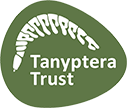
Amateur recorders and citizen scientists are the backbone of invertebrate recording across the UK (and beyond). We often venture into meadows, woodlands, gardens and marshes, armed with nets, traps, pots — and passion. Yet one question lurks behind even the most careful survey: how can we continue to collect useful data whilst minimising harm to the tiny creatures we study?
To address this, the Insect Welfare Research Society (IWRS) has launched the Biological Recorder 3Rs Innovation Award, aimed at fostering more humane methods in biological recording. The award provides funding and support to amateur recorders for developing, testing, and reporting improved or alternative methods that adhere to the 3Rs principles:
- Replace: find non-harmful or less invasive alternatives
- Reduce: minimise numbers or frequency of handling
- Refine: improve techniques to lessen suffering or stress
What the Award Offers
- Funding: Up to $2,000 USD (not for salaries) to cover supplies, travel, or related costs
- Technical support: Award recipients will be assisted by IWRS in designing experiments, analysing data, and disseminating findings
- Audience & eligibility: Intended for non-professional recorders – those not employed by universities, museums, or research institutions in invertebrate zoology. Applicants should also have at least two years’ experience in invertebrate recording or collection work.
Why It Matters
Biological recorders play an essential role in monitoring biodiversity, but the ethical dimension of how recording is done is often overlooked. By supporting amateurs – who are close to the field and often nimble in method innovation – this award seeks to:
- Encourage development of methods that reduce harm while maintaining scientific value
- Bridge gaps between ethical theory (3Rs) and practical invertebrate fieldwork
- Disseminate improved practices so that the wider biological‐recording community can adopt them
In doing so, IWRS aims to help shift standard practice toward more considerate, ethically informed recording methods that still deliver high-quality data.
Deadline: Applications are due by 1 December 2025 (midnight local time)
Award information can be found here:
https://www.insectwelfare.com/biological-recorder-3rs-innovation-award
For more on humane biological recording and the knowledge gaps that may inspire research ideas, check out the webinar below by Dr. Meghan Barrett that we hosted in September.







